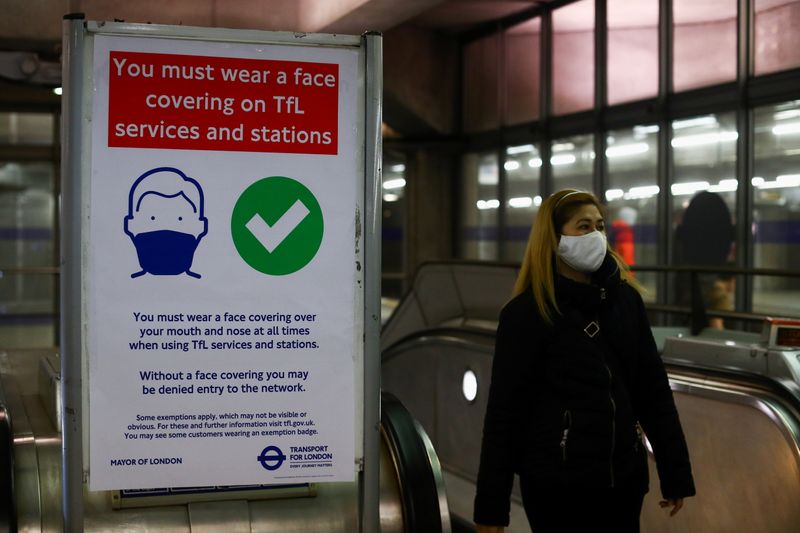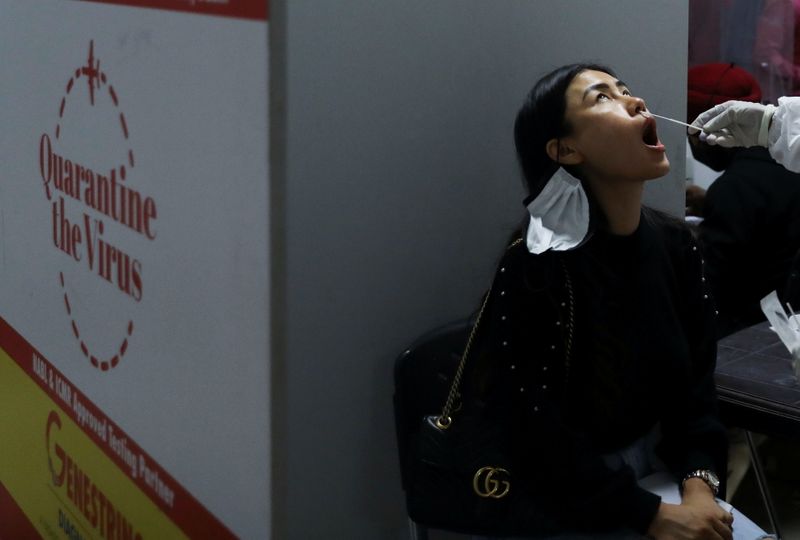By Nancy Lapid
(Reuters) - The following is a summary of some recent studies on COVID-19. They include research that warrants further study to corroborate the findings and that has yet to be certified by peer review.
Coronavirus reinfections rarely severe
Reinfections with the virus that causes COVID-19 are rarely severe, new findings suggest. Researchers in Qatar compared 1,304 individuals with a second SARS-CoV-2 infection with 6,520 people infected with the virus for the first time. The odds of developing severe disease were 88% lower for people with second infections, the researchers reported online on Wednesday in The New England Journal of Medicine. Reinfected patients were 90% less likely to be hospitalized compared to patients infected for the first time, and no one in the study with a second infection required intensive care or died from COVID-19, said Dr. Laith Jamal Abu-Raddad of Weill Cornell Medicine-Qatar in Doha. "Nearly all reinfections were mild, perhaps because of immune memory that prevented deterioration of the infection to more severe outcomes," he said. The risk for severe illness in people who had been infected before was only about 1% of the risk associated with initial COVID-19 infections, the researchers estimated. For half of those with a second infection, the first infection had occurred more than nine months earlier. It is not clear how long immune protection against severe reinfection would last, the researchers noted. If it does last for a long time, they speculate, it might mean that as the coronavirus becomes endemic, infections could become "more benign."
Cardiac stress test useful for lingering breathlessness
In COVID-19 survivors struggling with lingering shortness of breath for which doctors do not have an explanation, cardiac stress testing may help identify the cause of the problem, researchers say. "The current clinical guidelines do not recommend cardiopulmonary exercise testing out of concern that this test could worsen the patients' symptoms. However, we found that cardiopulmonary exercise testing was able to identify reduced exercise capacity in about 45% of patients," said Dr. Donna Mancini of the Icahn School of Medicine at Mount Sinai in New York. The 18 men and 23 women in the study all had persistent shortness of breath for more than three months after recovering from COVID-19, according to a report published on Monday in Journal of the American College of Cardiology: Heart Failure. They had normal-looking results on lung function tests, chest X-rays, chest CT scans and echocardiograms. The exercise tests revealed problems that would otherwise have been missed, Mancini said. "Low level functional testing recommended by the guidelines, such as a 6-minute walk test, would not be able to detect these abnormalities," she said.
Experimental smartwatch COVID-19 detection improving

Smartwatch alerting systems for early detection of COVID-19 infection are coming closer to reality, researchers reported on Monday in Nature Medicine. They tested their new system, developed with open-source software, in 2,155 wearers of Fitbit, Apple (NASDAQ:AAPL) Watch, Garmin watches or other devices. Ultimately, 84 of the volunteers were diagnosed with coronavirus infections - including 14 of 18 people without symptoms. Overall, the researchers' algorithms generated alerts in 67 (80%) of the infected individuals, on average three days before symptoms began. "This is the first time, to our knowledge, that asymptomatic detection has been shown for COVID-19," they said. Presently, the system mainly depends on measurements of wearers' resting heart rate, said study leader Michael Snyder of Stanford University School of Medicine in California. Going forward, he said he hopes watch manufacturers will be able to provide other types of highly accurate physiologic data. "Many stressors can trigger the alerting," Snyder said. "Most of these are easy to spot - travel, excessive alcohol, even work or other types of stress, so the user knows to ignore the alerts." When watches can report other health data such as heart rate variability, respiration rate, skin temperature, and oxygen levels, it will become easier to distinguish the COVID-19 cases from other non-COVID-19 events, researchers said. "Right now we are running this as a research study," Snyder said. "But soon we hope that FDA approved devices will dominate this area."
Vaccines in development: https://graphics.reuters.com/HEALTH-CORONAVIRUS/VACCINE-TRACKER/xegpbqnlovq/
